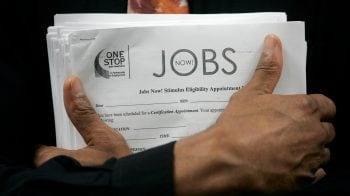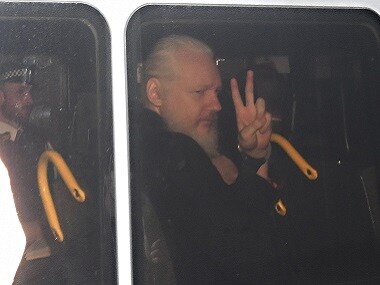The team that works on Alexa has a mix of contractors and Amazon employees who work from various countries including Boston, India, Costa Rica and Romania.
Amazon's voice assistant Alexa is used by millions across the world in their smart homes to play games or to listen to music. For the fear of invasion of privacy, many have also resisted these products. Their fear may not be far off as thousands of Amazon employees listen to recordings from Amazon Echo speakers to better Alexa for its users.
Many recordings are transcribed, annotated and put into the system to fill the loopholes in the software and its usage, Bloomberg reported. When developing software algorithms, a human role is often ignored, according to seven employees who have worked on it. Alexa needs help from humans to become the 'smart' device it is.
The team that works on Alexa has a mix of contractors and Amazon employees who work from various countries including Boston, India, Costa Rica and Romania. They have all signed non-disclosure agreements with the company. Working nine hours a day, each employee listens to nearly 1,000 audio clips, sources told the wire agency. The offices are discreet with no boards advertising Amazon's presence there.
Most of the times, the recordings are mundane. Some recordings are amusing like someone singing off key or a child screaming. When the team cannot ascertain what a particular word is, they use internal chat rooms to share files with each other. In some cases, they also heard violence or assault. In such cases, the employees are given a procedure to follow. But, two employees based in Romania said that they were told it was not Amazon's job to interfere.
Even background noise gets picked up by the speakers. In some cases, bank details and passwords are caught. Reviewers are then supposed to label them "critical data".
"We only annotate an extremely small sample of Alexa voice recordings in order to improve the customer experience. For example, this information helps us train our speech recognition and natural language understanding systems," a spokesperson said, adding that customers' privacy is the most important area for the company.
Users are given the option to disable the use of their voice recordings for product development. Even the recordings that are provided to employees do not have a name and address but only an account number and the device's serial number.
Amazon Echo debuted in 2014, popularising the use of voice assistants and smart homes. Quickly after that, Google launched its own version called Google Home. After that, Apple's HomePod entered the market. Many companies from China developed their own software. According to research, 78 million smart speakers were bought in 2018.
Even Siri, Apple's voice assistant, has human beings working behind the scenes to gauge if the Apple product is interpreting users' requests correctly. These recordings do not have any track-able personal information of the users.
Users around the world speculate whether someone is on the other end of the line. Reviewers have encountered many questions like, "Do you work for the NSA?" or "Alexa, is someone else listening to us?"





























































